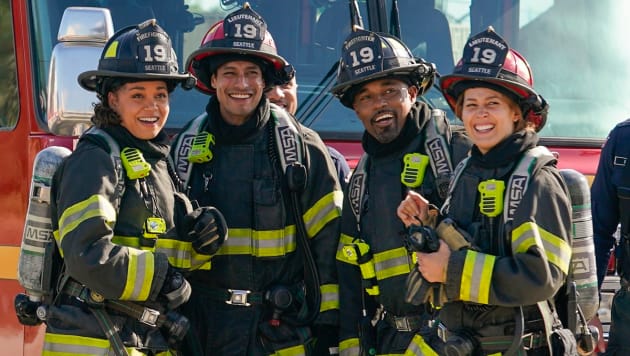Time Square, New York, April 8, 2016, Times Square is a major landmark of New York, brightly adorned with billboards and advertisements.
William Rodrigues dos Santos
Harrison Chapman gave his girlfriend tickets to see “West Side Story” last December, thinking he had delivered the perfect Christmas present.
However, two weeks before they were set to settle into their seats in March to see the performance directed by Tony Award winner Ivo van Hove, all 41 Broadway theaters were shuttered due to the coronavirus pandemic.
“[My girlfriend] was bummed,” the 24-year-old Chapman, who lives in Manhattan, said of the canceled show. He received a refund but has no plans to repurchase tickets. “I think we’d like to go, because Broadway is really unique to New York, but we probably won’t be the first people in line even when it opens up.”
Six months later, Broadway remains closed and isn’t slated to reopen until 2021. The reopening date has already been pushed back several times and could be delayed again. New York’s Metropolitan Opera on Wednesday announced the cancellation of its entire 2020-21 season due to the pandemic, an ominous sign for all performing groups.
The coronavirus has crippled the live theater industry, especially in its central hub in New York City. Popular shows like “Hamilton,” “The Lion King” and “Moulin Rouge,” which sold millions of dollars in tickets each week, aren’t generating any revenue and won’t for at least four more months.
The absence of theatergoers, who spent billions at restaurants, hotels and public transportation, is taking a further toll on the city’s economy.
During the last Broadway season from May 28, 2018 to May 26, 2019, shows garnered more than $1.83 billion, marking its highest-grossing season in history, according to an annual report published by the Broadway League.
The league has not released the numbers for the 2019 to 2020 season, which would have ended in May, but we know that Broadway snared only around $300 million in ticket sales in 2020 before shuttering.
As the number of deaths related to Covid-19 surpasses 1 million globally, it’s clear that the pandemic will have continuing devastating implications for the future of Broadway shows and the economy of New York City.
Waiting in the wings
Already, numerous musicals and plays have been postponed or canceled in the wake of the coronavirus.
Notably, Martin McDonagh’s comedy “Hangmen,” starring Dan Stevens (“Downton Abbey”) and Mark Addy (“Game of Thrones”) was canceled after playing only 13 preview shows. It was supposed to officially open on March 19, 2020.
The revival of Edward Albee’s “Who’s Afraid of Virginia Woolf” played nine preview performances before the show was officially closed on March 21.
The Tony-nominated “Beetlejuice” was already preparing to close on June 6, but producers are hoping to find a new home for the Tim Burton adaptation. It’s unclear if the quirky musical will find an empty theater in 2021.
Disney’s long-running “Frozen” stage musical also ended up on the chopping block due to coronavirus. The company will continue performances of Broadway staples “Aladdin” and “The Lion King” when theaters are permitted to reopen.
NEW YORK, NY – MARCH 22: Olaf and Greg Hildreth during the Broadway Musical Opening Night Curtain Call for ‘Frozen’ at the St. James Theatre on March 22, 2018 in New York City. (Photo by Walter McBride/Getty Images)
Walter McBride
The Actors’ Equity Association, the labor union that represents around 51,000 stage actors and managers in the live theatrical performance industry, said more than 1,100 actors and managers lost work on Broadway during the pandemic.
The theater industry in New York City supports more than 96,000 local jobs, according to the Broadway League. That includes those involved in productions and those working in the area around Broadway like retailers, taxi drivers and restaurant owners.
Some producers have been able to exhibit prerecorded versions of their work in order to extend salaries and health care coverage to their casts and crews.
The Christopher Ashley production of “Diana,” a musical about Princess Diana of Wales, will be filmed on the stage of the Longacre Theatre without an audience and will be released on Netflix sometime before its new opening night of May 25.
Others have had to seek out alternative income sources at a time when few options exist.
“Unfortunately, these [jobs] are often in other industries that have been hard-hit, such as restaurants,” said Actors Equity spokesman Brandon Lorenz. “Many, many of our members were relying on pandemic unemployment insurance, though federal funds have run out.”
The union has partnered with The Actors Fund to help members pay for rent and groceries in an initiative called the Curtain Up Fund. It is also fighting to get the HEROES Act passed, which would resume pandemic unemployment insurance, as well as $9 billion in public arts funding.
“So far, one long-running Broadway show has closed due to the pandemic, and while we hope most can reopen, the only thing I can say with certainty when it comes to reopening theater is that it will depend on a stronger national testing strategy and bringing the virus under control,” Lorenz said.
Impact on New York City
Broadway’s closures reverberate far beyond the theater world. Tourists who venture to New York City to see musicals and plays contribute billions of dollars to the local economy as they pay for taxis, pizza slices and hotel rooms.
For the last 25 years, Henry Pinkney, has made an annual pilgrimage to New York City with his family, to see a handful of Broadway shows. This year, the 68-year-old Michigan man had tickets to see “Six,” “To Kill a Mockingbird,” “Lehman Trilogy” and “Plaza Suite” ahead of Memorial Day weekend. He ultimately received refunds for all four performances.
Pinkney said his family plans to return to the city, but not before “the Covid situation is well under control.”
Folks like Pinkney who come to visit from other states or countries, account for 65% of Broadway’s annual ticket sales. These visitors contributed around $11.5 billion to the New York City economy last year, according to an annual report published by the Broadway League.
Around $8 billion of that spending was at restaurants, hotels, shops and for public transportation.
“Broadway is the honey that draws bees,” said Tim Tompkins, president of the Times Square Alliance, a nonprofit organization that promotes theater district.
Tompkins noted that there has been less activity on the streets around Times Square in the wake of the coronavirus, with tourism down significantly.
At the height of the pandemic, pedestrian counts in the district were down 90%, he said. Now, they are down around 75%.
Broadway tourists are particularly important to the area because of how long they stay in the city and how much time they spend in and around Times Square.
The Broadway League determined that domestic Broadway tourists stayed in New York City for an average of three days when visiting to see a show in 2019. Foreign Broadway tourists stayed for around 6.7 days.
During their stays these tourist spent $1.8 billion collectively on food and drink in the city, $2.2 billion on accommodations and $1.04 billion shopping at local retailers.
The last time Times Square faced this kind of financial uncertainty was in the wake of the Sept. 11, 2001, terrorist attacks, when visitor foot traffic and spending plummeted because of flight restrictions and fears of another attack in a highly populated area.
In the days after the attack, New York lost more than $300 million in visitor spending and Broadway lost around $5 million in ticket sales. Hotels that would normally have been at 90% occupancy, were barely half full. Restaurants lost $6 million to $10 million per day.
However, 48-hours after the attack, Broadway’s lights were back on.
“Right after 9/11, it was almost like a patriotic duty to visit New York City and see a Broadway show,” Tompkins said. “The difference now is that this is hitting everywhere. Every tourism destination is going to be fighting for tourists.”




